Live music venues offer a vibrant atmosphere where patrons can enjoy incredible performances while socializing with friends. However, the key to providing an exceptional experience is often the behind-the-scenes service — especially when it comes to table service. Optimizing table service at these venues can drastically enhance the overall guest experience, attract customers, increase customer satisfaction, and ensure guests leave with a positive impression. In this article, we’ll explore strategies and tips on how to improve table service at live music venues for a seamless and unforgettable guest experience.
1. Understanding Your Target Audience
Understanding your target audience is crucial for the success of your music venue. Knowing who your audience is, what they like, and what they expect from a live music experience will help you tailor your venue to meet their needs. Consider factors such as age, location, musical preferences, and spending habits when defining your target audience. For example, if your venue is located in a college town, your target audience may be students and young adults who are looking for a lively atmosphere and affordable drinks. On the other hand, if your venue is located in a more upscale area, your target audience may be professionals and couples who are looking for a sophisticated evening out.
To better understand your target audience, consider conducting market research, such as surveys or focus groups, to gather information about their preferences and expectations. You can also analyze data from social media and online reviews to get a sense of what your audience is looking for in a live music experience. By understanding your target audience, you can create a venue that meets their needs and provides a memorable experience that will keep them coming back.
2. Obtaining Necessary Licenses and Permits
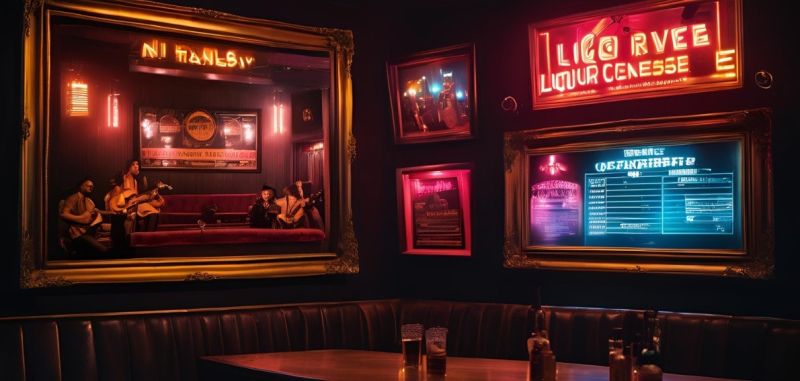
Obtaining the necessary licenses and permits is a critical step in opening a music venue. Depending on the location and type of venue, you may need to obtain a variety of licenses and permits, such as a liquor license, food service permit, and building permit. It’s essential to research the specific requirements for your venue and location to ensure that you are in compliance with all regulations.
Some common licenses and permits required for music venues include:
Liquor License: Allows you to serve alcohol on premises.
Food Service Permit: Allows you to serve food on premises.
Building Permit: Required for construction or renovation of the venue.
Sound Permit: Required for live music performances.
Fire Safety Permit: Ensures that the venue meets fire safety standards.
It’s also important to note that some licenses and permits may require renewal or updates periodically. Be sure to stay on top of these requirements to avoid any fines or penalties. By securing the necessary licenses and permits, you can operate your music venue smoothly and legally, providing a safe and enjoyable environment for your guests.
3. Conducting a Financial Analysis
Conducting a financial analysis is a crucial step in opening a music venue. A financial analysis will help you understand the costs associated with running a music venue, including operating expenses, revenue projections, and break-even analysis. This information will help you make informed decisions about your business and ensure that you are prepared for the financial challenges that come with running a music venue.
Some key components of a financial analysis for a music venue include:
Operating Expenses: Include costs such as rent, utilities, staffing, and marketing.
Revenue Projections: Include projected income from ticket sales, food and beverage sales, and sponsorships.
Break-Even Analysis: Calculates the point at which the venue’s revenue equals its expenses.
By conducting a thorough financial analysis, you can create a solid business plan that will help you navigate the financial challenges of running a music venue. This preparation will enable you to make strategic decisions that can lead to more money and long-term success.
4. Streamline the Reservation Process
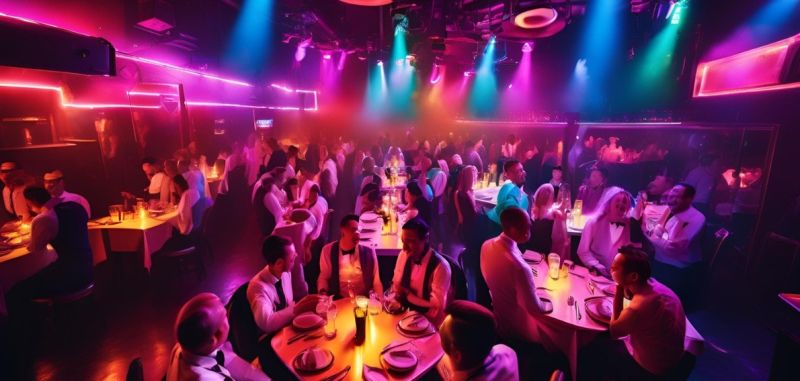
A smooth table service experience begins before guests even step foot into the venue. Efficient reservation systems and clear communication are essential for managing guest expectations. Here’s how to optimize reservations:
Offer Multiple Booking Channels: Implement an online booking system where guests can reserve tables in advance. This provides convenience for the customer and ensures that you manage seating arrangements effectively.
Confirm Reservations: Send a confirmation email or text message a day or two before the event. Include essential details like showtime, menu highlights, and the location of the venue. This reduces no-shows and helps the team prepare for the crowd.
Keep Wait Times in Check: If your venue operates on a first-come, first-served basis, ensure wait times are kept to a minimum. Use digital waitlists or apps that notify guests when their table is ready.
Key Tip: Using a ticketing platform like Ticket Fairy, venue managers are equipped with all the tools they need to integrate Timed Entry Ticketing, or time slot based admission management. With efficient time slot management and real-time data at-hand, crowd management and check-ins become a seamless task.
Also Read: Attendee Management for Concert Venues in 2025: Navigating the Future of Live Events
5. Train Staff on Event-Specific Needs
Live music venues often host various events, each with unique dynamics. Training your staff to adapt to these changing needs is critical for providing excellent table service. Here are some ways to equip your team:
Event-Specific Training: Whether it’s an intimate acoustic set or a high-energy rock concert, ensure staff understand the vibe of each event. They should know how to engage guests based on the environment — whether it’s keeping conversations quiet during a jazz set or encouraging guests to be energetic during a festival-like performance.
Effective Communication: Ensure your team has radios or communication devices so they can easily reach each other in case of service issues, delays, or urgent guest needs. Quick communication will prevent service hiccups and keep everything running smoothly.
Service Speed: A crowded venue can overwhelm staff, so training them to manage time efficiently without sacrificing quality is essential. Teach them to prioritize tasks, such as getting drinks to tables during slower moments and ensuring food is delivered promptly during high-energy performance times.
6. Design an Intuitive Seating Arrangement

The layout of your venue can significantly impact table service efficiency. Here’s how to design a seating arrangement that optimizes both the guest experience and the service flow:
Strategic Table Placement: Ensure tables are positioned in a way that makes it easy for waitstaff to move between them without interrupting the performance. Consider the sightlines to the stage and aim to balance prime seats with less desirable spots.
Optimize Table Size: Avoid overcrowding the venue with large tables that take up too much space or smaller tables that don’t cater to groups. A mix of table sizes is essential for accommodating different party sizes and providing ample room for waitstaff to navigate.
Clear Pathways: Create wide aisles between tables to allow servers to easily maneuver without disrupting guests’ view of the performance. This is especially important for venues that host high-energy events where people might be standing or moving around.
Also Read: Music Event Floor Plan Guide: Creating the Perfect Layout
7. Leverage Technology for Seamless Service
In today’s digital age, technology plays a vital role in enhancing customer service at live music venues. Here are some ways to integrate tech solutions:
Mobile Ordering and Payment: Implement mobile ordering systems where guests can place orders from their table via an app. This reduces wait times and helps eliminate mistakes during order-taking. Additionally, allowing guests to pay through the app minimizes the need for staff to process payments at the table, reducing congestion and speeding up service.
POS Integration: Invest in point-of-sale (POS) systems that seamlessly integrate with your reservations and mobile ordering system. This helps staff manage orders and track guest requests efficiently, reducing the chances of errors.
Table Management Software: A table management system allows you to monitor and track seating arrangements, guest preferences, and order history, so the service team can provide a more personalized experience and anticipate guest needs.
8. Efficient Inventory Management
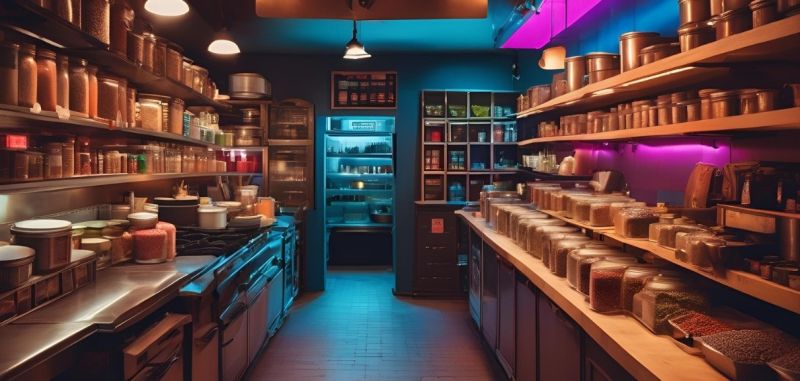
Efficient inventory management is critical for a music venue, particularly when it comes to managing stock levels of food, beverages, and merchandise. A well-managed inventory system will help you avoid overstocking or understocking, which can result in wasted resources and lost revenue.
Some tips for efficient inventory management include:
Conduct Regular Inventory Counts: Ensure accuracy by frequently checking stock levels.
Implement a First-In, First-Out (FIFO) System: Ensure that older stock is sold before newer stock to reduce waste.
Use Inventory Management Software: Track stock levels and automate ordering to maintain optimal inventory.
Analyze Sales Data: Identify trends and adjust inventory levels accordingly to meet demand.
By implementing an efficient inventory management system, you can reduce waste, save time, and increase revenue. This will help your music venue run smoothly and ensure that you always have the right products available for your guests.
9. Create an Engaging and Dynamic Menu
Guests at live music venues often look for food and beverage options that align with the energy of the event. Concert halls often require specialized equipment and acoustics to enhance the audience experience. Here’s how to enhance your menu offerings for the best guest experience:
Themed Menus: Consider creating event-specific menus or themed food and drink options based on the type of music being performed. For example, a country music night could feature Southern comfort food, while a jazz event could have a sophisticated cocktail menu.
Quick and Shareable Options: Guests at live music venues often prefer finger foods or shareable platters that don’t disrupt the experience. Offer appetizers, shareable boards, or tapas-style dishes that guests can enjoy without the need for utensils. A music hall combines casual dining with live performances, creating an energetic nightlife experience.
Specialty Cocktails and Drink Pairings: Partner with your bartenders to craft signature cocktails or beer and wine pairings that complement the event’s theme. This adds to the overall experience and gives guests something memorable to talk about.
10. Building Strong Relationships with Suppliers
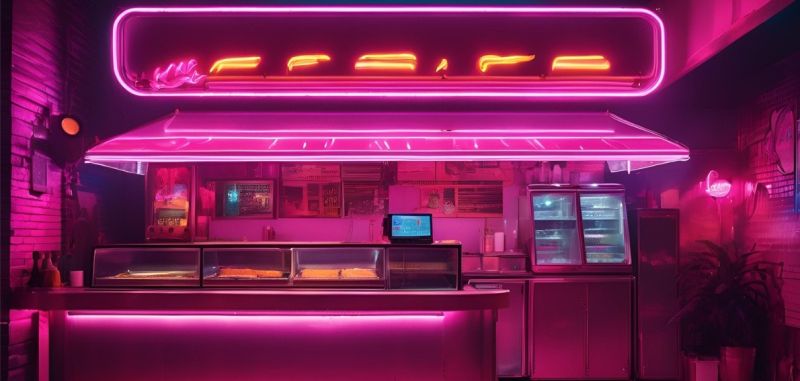
Building strong relationships with suppliers is essential for a music venue, particularly when it comes to sourcing high-quality food, beverages, and merchandise. By building strong relationships with suppliers, you can negotiate better prices, ensure timely delivery, and access a wider range of products.
Some tips for building strong relationships with suppliers include:
Communicate Clearly and Regularly: Ensure that suppliers understand your needs and expectations.
Provide Accurate and Timely Information: Keep suppliers informed about your inventory needs to avoid shortages or overstocking.
Offer Incentives: Encourage suppliers to work with you by offering loyalty programs or exclusive deals.
Build Personal Relationships: Establish trust and rapport with suppliers to create a mutually beneficial partnership.
By building strong relationships with suppliers, you can create a reliable supply chain that supports the success of your music venue. This will help you provide a consistent and high-quality experience for your guests, attracting customers and ensuring they have a memorable experience.
11. Prioritize Customer Satisfaction and Personalization
Personalization can significantly enhance the guest experience at live music venues. Small touches can make a big difference, especially when it comes to table service. Here’s how you can ensure guest satisfaction:
- Personalized Greetings: Ensure that staff members greet regular guests by name and note any special requests from previous visits. This creates a welcoming, personal atmosphere where guests feel valued.
- Solicit Feedback: Actively ask for feedback after the event. Provide a quick survey on your website or via email to learn what worked and what could be improved. Listening to guest feedback can help refine table service and boost future satisfaction.
- Incorporate VIP Experiences: Consider offering VIP table service packages for those who want a more exclusive experience. This could include premium seating, dedicated waitstaff, and access to limited-edition drinks or food options.
12. Manage Crowd Flow During Live Music Performances
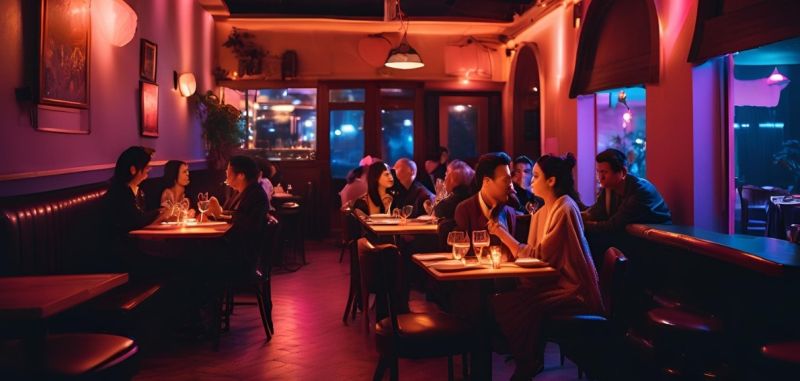
Managing crowd flow during high-energy performances is crucial for maintaining a seamless service experience. Leasing or purchasing existing buildings can require significant financial investment and planning. Here’s how to keep things running smoothly:
Anticipate Peak Times: Before the performance, predict when guests will be most likely to order drinks or food — usually during intermissions or slower musical segments. Make sure your staff is prepared to handle an influx of orders at these times.
Pre-Order Option: Offer guests the ability to pre-order drinks or appetizers before the show starts, ensuring that they have what they need during the performance without interrupting the show. Obtaining licenses to play music is essential to comply with copyright laws and avoid potential fines.
Post-Event Service: Don’t forget about service after the performance ends. Many guests will want to stick around for a post-show drink or snack. Ensure that staff is prepared for a second wave of orders as guests linger.
Conclusion
Optimizing table service at live music venues requires a combination of strategic planning, well-trained staff, intuitive technology, and a commitment to guest satisfaction. By streamlining reservations, creating dynamic menus, using technology effectively, and focusing on personalization, you can ensure your venue offers a seamless experience for all guests. Sourcing beverages from local businesses can enhance the drink menu and foster community connections. When executed well, your table service will not only enhance the performance but also create lasting memories that guests will want to revisit — bringing them back for the next show.
Frequently Asked Questions
What are the first steps in understanding your audience and ensuring legal compliance?
Understanding your target audience is crucial for tailoring your venue to meet specific needs. Consider factors like age, location, musical preferences, and spending habits. Conduct market research through surveys, focus groups, and analysis of social media and online reviews to gather information about preferences and expectations.
Legal compliance requires obtaining necessary licenses and permits. These typically include a liquor license, food service permit, building permit, sound permit, and fire safety permit. Research the specific requirements for your location, as they vary by jurisdiction. Remember that some licenses require periodic renewal or updates – staying current helps you avoid fines or penalties. Both understanding your audience and ensuring legal compliance create the foundation for a safe, enjoyable environment that meets customer expectations.
How can venue owners improve the reservation process for guests?
Optimizing the reservation process starts before guests arrive at your venue. Implement multiple booking channels, particularly an online reservation system, so guests can easily secure tables in advance. This benefits both customers (convenience) and staff (better seating management).
Send confirmation emails or text messages 1-2 days before events that include essential details like showtime, menu highlights, and venue location. These reminders reduce no-shows and help your team prepare appropriately. For venues operating on a first-come, first-served basis, minimize wait times by implementing digital waitlists or apps that notify guests when their table is ready. A streamlined reservation process sets positive expectations for the experience to come and demonstrates professionalism, making guests more likely to return for future performances.
What role does staff training and venue layout play in providing excellent table service?
Staff training should be event-specific, ensuring team members understand the unique dynamics of each performance type. Train staff to adapt their service style based on the environment—quieter during acoustic sets, more energetic during high-energy performances. Effective communication tools like radios help staff coordinate during busy periods, preventing service disruptions.
Venue layout significantly impacts service efficiency. Strategic table placement should balance prime viewing positions with operational needs, ensuring waitstaff can move freely without interrupting performances. Incorporate a mix of table sizes to accommodate different group sizes, and create wide pathways between tables for easy navigation. Clear pathways are especially important during high-energy events when guests might be standing or moving around. Thoughtful layout design enhances both the guest experience and service flow.
How can technology enhance table service at live music venues?
Technology integration creates seamless service experiences at live music venues. Mobile ordering systems allow guests to place orders directly from their tables via apps, reducing wait times and eliminating order-taking errors. Similarly, mobile payment options minimize the need for staff to process payments tableside, speeding up service and reducing congestion.
Invest in point-of-sale (POS) systems that integrate with your reservation and mobile ordering platforms to help staff manage orders and track requests efficiently. Table management software enables monitoring of seating arrangements, guest preferences, and order history, allowing for more personalized service and anticipation of needs. These technological solutions not only improve operational efficiency but also enhance the overall guest experience by minimizing disruptions during performances and allowing guests to focus on enjoying the music rather than waiting for service.
What menu considerations are important for live music venues?
Live music venues require specialized menu planning that aligns with the performance atmosphere. Create event-specific or themed menus that complement the music being performed—for example, Southern comfort food for country music nights or sophisticated cocktails for jazz performances. This approach enhances the immersive experience for guests.
Focus on quick-service, shareable options that don’t disrupt the viewing experience. Finger foods, appetizer platters, and tapas-style dishes that can be enjoyed without utensils are ideal. Partner with bartenders to craft signature cocktails or beverage pairings that complement event themes, giving guests memorable experiences to discuss afterward. Your menu should balance quality with efficiency, allowing guests to enjoy food and drinks without missing the performances they came to see. This thoughtful approach to menu design can significantly enhance overall satisfaction.
How can venues personalize service and manage crowd flow during performances?
Personalization significantly enhances guest experiences. Train staff to greet regular guests by name and remember their preferences from previous visits. Actively solicit feedback through post-event surveys to identify improvement opportunities. Consider offering VIP table service packages with premium seating, dedicated waitstaff, and exclusive menu options for those seeking enhanced experiences.
Managing crowd flow requires anticipating peak ordering times, typically during intermissions or slower musical segments. Implement pre-order options so guests can secure drinks or appetizers before performances begin, minimizing service interruptions. Don’t overlook post-performance service, as many guests linger for drinks or snacks after shows. Prepare staff for this second wave of orders. Strategic crowd management ensures all guests receive attentive service without disrupting their enjoyment of performances, creating memorable experiences that encourage return visits.
You May Also Like:
Onground Music Event Management Guide: Ensuring Your Event Runs Smoothly
Ticketing Platforms for Anti Scalping: A Comprehensive Guide for Live Event Organizers
Live Music Event Trends in 2025 That Event Organizers Should Know About


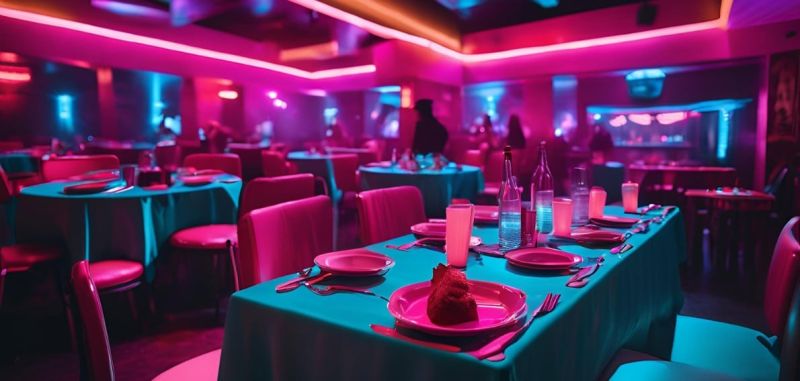
 21st May 2025
21st May 2025